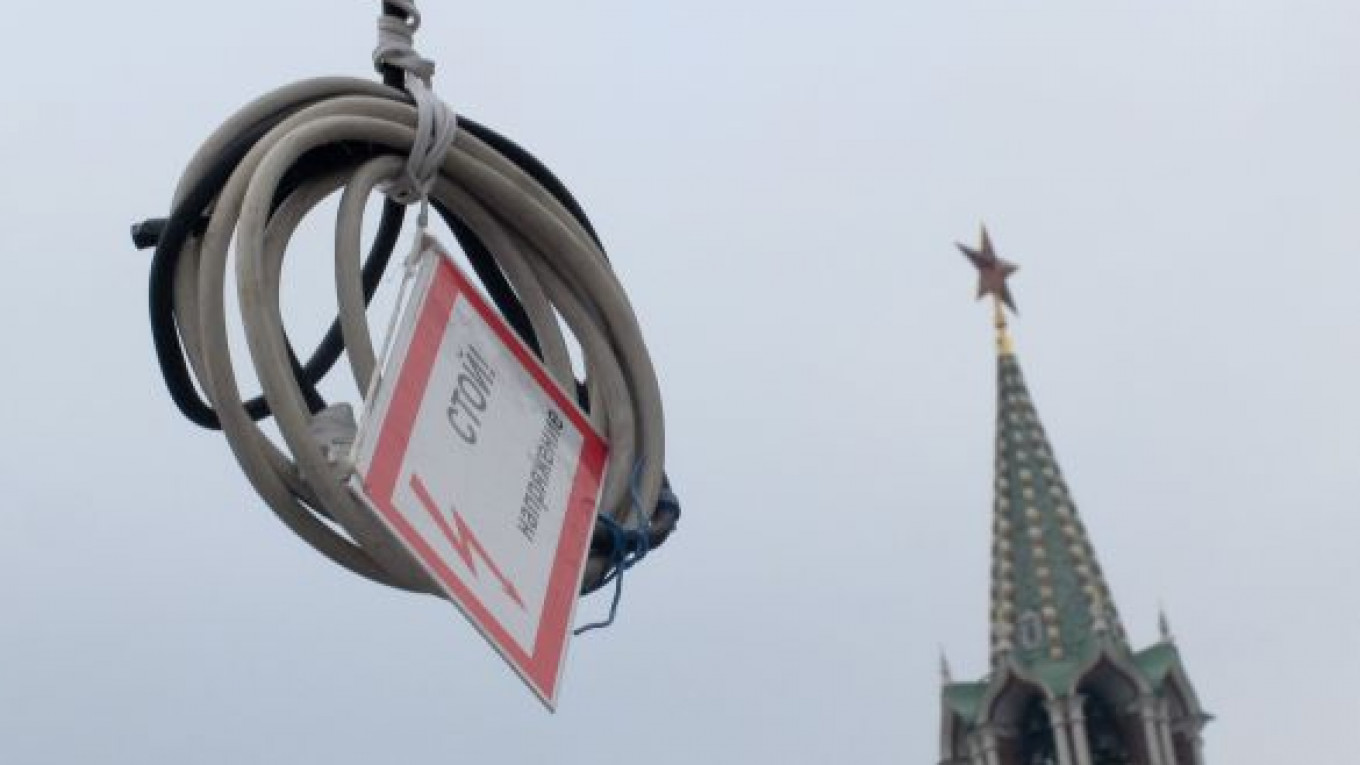Internet service providers are adding and expanding their systems for scrutinizing online content as they prepare for the onset of the new Internet restriction law.
Taking effect Nov. 1, the law forces Internet service providers to help the government shut down websites featuring content banned by the new law or otherwise deemed illegal. President Vladimir Putin is expected to sign the legislation, which flew through the State Duma and Federation Council earlier this month.
Leading providers of Internet access for mobile and home users are now ramping up their capabilities for "Deep Packet Inspection," a system for filtering packets of data. Compared with other packet review methods, DPI yields more information about what is being sent over computer networks.
Mobile and Internet companies MegaFon and Mobile TeleSystems have had DPI systems in place prior to the new law, but both are now expanding those systems, the companies said. Vedomosti first reported on the DPI systems Tuesday.
MegaFon has run a DPI system on its mobile networks since 2008 and has used it with various fixed-line telecommunications as well, spokeswoman Yulia Dorokhina said.
"We are now conducting a tender to choose a universal solution for optimizing traffic on fixed and mobile networks," she said by e-mail Tuesday. About 40 percent of its 63 million customers use fixed or wireless Internet services, she said.
MTS also is already using DPI in its mobile Internet networks, spokeswoman Valeria Kuzmenko said. For the new law, MTS will expand the DPI system on its mobile networks, add DPI to its fixed-line networks and set up a network management center for both types, she said.
Currently, MTS has about 70 million mobile subscribers and about 11.5 million household wired Internet subscribers, Kuzmenko said.
VimpelCom, with about 56 million mobile customers and 2 million wired Internet customers using its Beeline services, "is testing DPI on both mobile and fixed networks in a number of regions," spokeswoman Anna Aibasheva told Vedomosti. The company isn't providing any additional details at this time, she said by phone.
Meanwhile, state-owned Rostelecom has a DPI pilot project running in one of its major regional divisions, Kira Kiryukhina told The Moscow Times. She said DPI would be used to meet the new law and to provide tariff options and traffic analysis.
MTS said it expects the full traffic-filtration system required by the new law to cost the company roughly $50 million. The other companies declined to name their price tags.
The government can involve the service providers if the website owner fails to delete the objectionable material and the firm hosting the website then fails to block access to the site, all essentially within less than 48 hours.
Materials that display child pornography, entice underage citizens to participate in activities "of a pornographic nature," exhort or instruct people to commit suicide or encourage either the use or preparation of narcotics are all specifically subject to Internet censorship under the law.
A Message from The Moscow Times:
Dear readers,
We are facing unprecedented challenges. Russia's Prosecutor General's Office has designated The Moscow Times as an "undesirable" organization, criminalizing our work and putting our staff at risk of prosecution. This follows our earlier unjust labeling as a "foreign agent."
These actions are direct attempts to silence independent journalism in Russia. The authorities claim our work "discredits the decisions of the Russian leadership." We see things differently: we strive to provide accurate, unbiased reporting on Russia.
We, the journalists of The Moscow Times, refuse to be silenced. But to continue our work, we need your help.
Your support, no matter how small, makes a world of difference. If you can, please support us monthly starting from just $2. It's quick to set up, and every contribution makes a significant impact.
By supporting The Moscow Times, you're defending open, independent journalism in the face of repression. Thank you for standing with us.
Remind me later.






